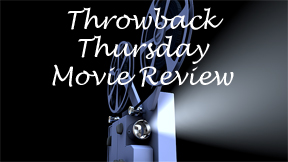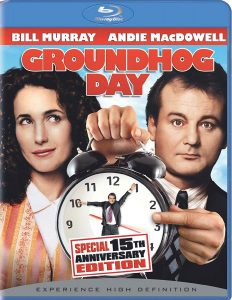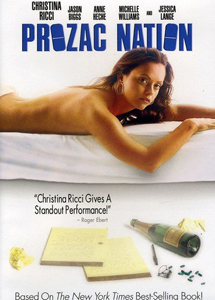Despite being an amazing film, “Prozac Nation” (2001) just couldn’t fit in with normal movies. It had a film festival premiere in 2001 but the U.S. public couldn’t watch it until 2005. This adaptation of Elizabeth Wurtzel’s 1994 memoir about her 1980s college years as a chronic depressive and drug user will connect with people who can relate, but perhaps whiff with other audiences.
I’m in the former category, as some of my autistic comorbidities match Lizzie’s – hyper-empathy, hyper-attachment and overthinking. Christina Ricci has a natural likeability; she’s the villain in “The Opposite of Sex” yet still retains a sympathetic aspect. And some of that factors in here: Being both adorable and brainy (we get snippets of the Harvard journalism major’s impressive prose), Lizzie is irresistible to college guys.
Testing where the line is
But in “Prozac Nation,” Ricci gives one of her rawest turns, as Lizzie challenges loved ones to see if she can cross the line of tolerance. In a showcase scene, Lizzie talks to her mom (Jessica Lange) and alternately breaks down in tears, hurls insults and offers genuine apologies. Ricci performs it in such a way that we can see Lizzie’s mental-health problems, not a melodramatic piece of acting.

“Prozac Nation” (2001)
Director: Erik Skjoldbjærg
Writers: Frank Deasy, Larry Gross (screenplay), Galt Niederhoffer (adaptation), Elizabeth Wurtzel (book)
Stars: Christina Ricci, Jason Biggs, Jessica Lange
This is after another shocking scene where Lizzie behaves horribly around her mother and grandparents, a generation that is shocked by their granddaughter’s drunkenness and swearing – and of course Lizzie knows this. She’s giving a tragic performance for her family members, yet is aware of her horrible behavior, with the shame not far from the surface.
Tragic, but not tragi-comic, like a lot of films of this ilk. But also not turn-off-the-movie dark. “Prozac Nation” has great dialog – as three writers adapt Wurtzel’s work — that nicely describes Lizzie’s condition. Consider this sad zinger from Lizzie’s bestie (and sometimes enemy) Ruby (an ethereal Michelle Williams): “Lizzie, I’m not crying because you’re mean. I just can’t imagine how incredibly painful it must be to be you.”
But that’s because Ruby isn’t with Lizzie every moment like we are. We can see how painful it is, partly because of the mental illness, partly because of parents who failed her (one who means well, one who sadly doesn’t know how to be a parent).
Jason Biggs – who would later (or earlier, depending on how you look at it) star with Ricci in 2003’s underrated Woody Allen entry “Anything Else” – comes in as Perfect Boyfriend Rafe, who recognizes the positive aspect of Lizzie’s sensitivity: She feels every emotion right down to her toes.
Creating space to be creative
But again, how far can even a caring boyfriend be pushed? Space needs to be created, and the titular Prozac, which entered medical use in 1986, can create that space. The film somewhat rushes through the old debate – Lizzie feels like the drug “changes” her (and that she’s then an empty shell rather than a real, if horribly flawed, person).

(She throws out a voiceover line with the movie’s title, which is thematically odd, since this isn’t a movie about universal depression, it’s about Lizzie’s specific depression.)
But we know the alternative – stopping medication — is not tenable. Then Lizzie rather quickly finds how to use the space created by the drug to continue as a writer in a measured, professional manner, rather than in cocaine-induced spiels. So it’s the correct ending, yet kind of a weird one, because we feel like all this manic bad behavior should be balanced by something absolutely wonderful. Mere stability is the only reward.
The fact that such a good film came out of such an instable source author and insane film-release process is pretty remarkable. We can see some bizarre continuity flaws, though. Lou Reed stars as himself, but he’s 16 years too old to play himself. And here’s a fun closed-captioning error. Ruby says she recognized Lizzie from “the face book” (a physical object in 1986, not the social media website that launched in 2004, after this film was made), but the caption says “Facebook.”
As Ruby soon finds out to her horror, a person is much more than their class photo. In a career of great performances, it’ll always be hard to shake the portrayal of Elizabeth Wurtzel as one of Ricci’s very best.

